Discover financial empowerment resources
Discover financial empowerment resources
In recognition of November 2025 Financial Abuse Awareness month, the Canadian Center for Women's Empowerment (CCFWE) hosted Empowering Survivors Through Digital Safety: Preventing Technology-Facilitated Economic Abuse within Financial Systems. This webinar explores how survivor-informed policy,...
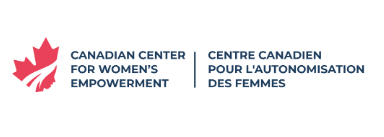
Understanding Technology-Facilitated Economic Abuse: This form of abuse arises when digital tools are misappropriated to monitor, control, or sabotage an individual's finances. It can take many forms, including tracking online banking, identity theft, restricting account access, and even utilizing...

Financial abuse is the most common form of abuse of older adults. As professionals, caregivers, family members and older adults, we all need to understand the impact of financial exploitation and recognize the signs so we can help protect ourselves and those we work with and care for. This...

Financial abuse is one of the most common forms of elder abuse in Canada. Learn how to identify and prevent it, plus where to go for help if you or an older person you know is being financially...

November 26 is National Economic Abuse Awareness day. The Canadian Centre for Women's Empowerment has published their report on the state of economic abuse in Canada; championing financially strong futures for survivors. Here are some additional resources of potential interest: The economic...

World Elder Abuse Awareness Day takes place each year on June 15th and is a good opportunity to remind ourselves, friends and family about the importance of recognizing the signs of financial abuse and taking preventative measures. Older adults are often the target of financial abuse, but anyone...

Women’s shelters are often the first point of contact for victim-survivors fleeing abusive relationships. Therefore, safety and shelter are logically at the forefront of staff members’ immediate concerns. Once the victim-survivor is in a place of safety, it is crucial to explore the patterns of...
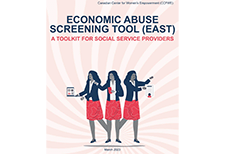
With speakers from CCFWE, Johannah Brockie - Program Manager for Advocacy and System Change and Jessica Tran - Program Manager for Education and Awareness, this webinar will guide you through the definition of economic abuse, how to identify an economic abuser, impacts of economic abuse, Covid-19...

This infographic explores 3 forms of economic abuse and associated tactics used to coercively control intimate partners. These abusive tactics are compounded by economic systems that systemically oppress groups including Black, Indigenous, and people of colour; people with disabilities; people...
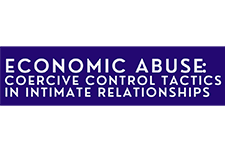
This resource provides a list of free legal information resources produced by Community Legal Education Ontario...
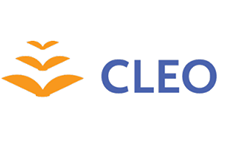
There were 85 shelters for victims of abuse that had ties to First Nations, Métis or Inuit communities or organizations operating across Canada in 2017/2018. These Indigenous shelters, which are primarily mandated to serve victims of abuse, play an important role for victims leaving abusive...

This guide provides step-by-step materials to help communities form networks to increase their capacity to prevent and respond to elder financial exploitation. The planning tools, templates and exercises offered in this guide help stakeholders plan a stakeholder retreat and training event, host a...

Firms and representatives in the financial services industry occasionally encounter situations where a client’s vulnerability causes the client to make decisions that are contrary to his or her financial interests, needs or objectives or that leave him or her exposed to potential financial...

This is a companion guide to the 'Your Money, Your Goals' curriculum by the Consumer Financial Protection Bureau (CFPB) in the United States. This guide- Your Money, Your Goals: Focus on People with Disabilities—contains information, tips, and tools based on the insights from people with...
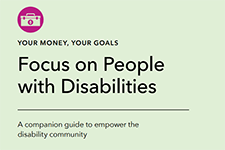
Your Money Seniors is a financial literacy program for seniors. Modelled on the CBA’s highly successful Your Money Students program, this seminar program is offered in French and English, free of charge, to seniors’ groups across the country. Your Money Seniors is presented by bankers in...

Being homeless, whether briefly or for an extended period of time, can be profoundly distressing for whoever undergoes the experience. This portrait is the result of an exploratory study on homelessness in 13 communities representing five First Nations in Quebec. The report identifies the principal...
This study provides information on the number of Canadians who reported that they ever had to temporarily live with family, friends, in their car, or anywhere else because they had nowhere else to live—a situation referred to as ‘hidden’ or ‘concealed’ homelessness. It also examines the...
With the bulk of baby-boomers set for retirement, the financial abuse of seniors is a growing concern in British Columbia—for government, financial institutions and boomers themselves. In order to address the problem of seniors financial abuse it is generally agreed that communities must improve...
Focus on Native Communities provides information and tools to help you meaningfully connect Your Money, Your Goals to the community members you serve. T his guide—Your Money, Your Goals: Focus on Native Communities—contains additional information, tips, and tools based on the wisdom of tribal...
This handbook is a guide to the legal system for women in Ontario who are in abusive relationships. The legal system is constantly changing. Each situation is unique and requires different solutions. For legal advice about your situation, you should speak with a...
This guide summarizes ways of preventing and intervening in situations of financial abuse of...
The National Coalition for the Homeless (NCH) has documented 1,650 acts of violence against homeless individuals by housed perpetrators over the past 17 years (1999-2015). These crimes are believed to have been motivated by the perpetrators‘ biases against people experiencing homelessness or...
Many laws affect your financial rights and responsibilities within your relationships. In Ontario most of the laws apply to two-person relationships and some laws apply differently to married couples than to partners who are not married. Either way, these law can affect you financially when you...
In Economic Action Plan 2013, the Government identified seniors as a priority group and committed to implementing a financial literacy strategy that specifically responds to seniors’ needs. This document, which has been refined through consultation with Canadians and stakeholder organizations...
With over 50 million Americans aged 62 and older, Older Adults are prime targets for financial exploitation both by persons they know and trust and by strangers. A key factor in some cases of elder financial exploitation is mild cognitive impairment...
